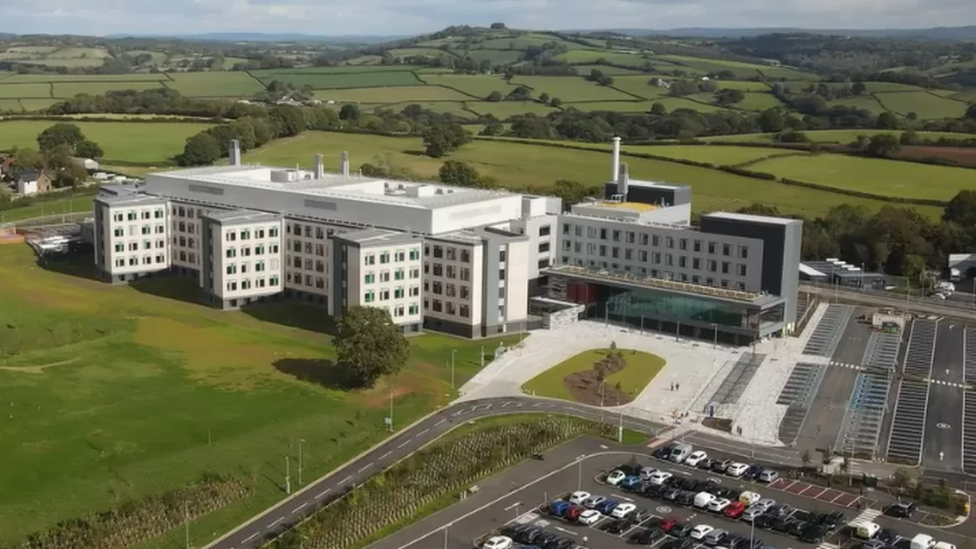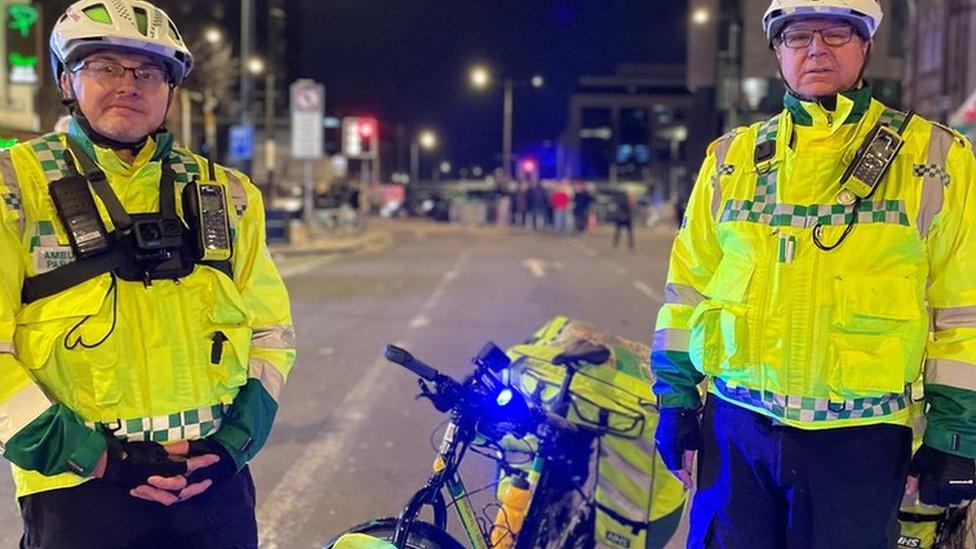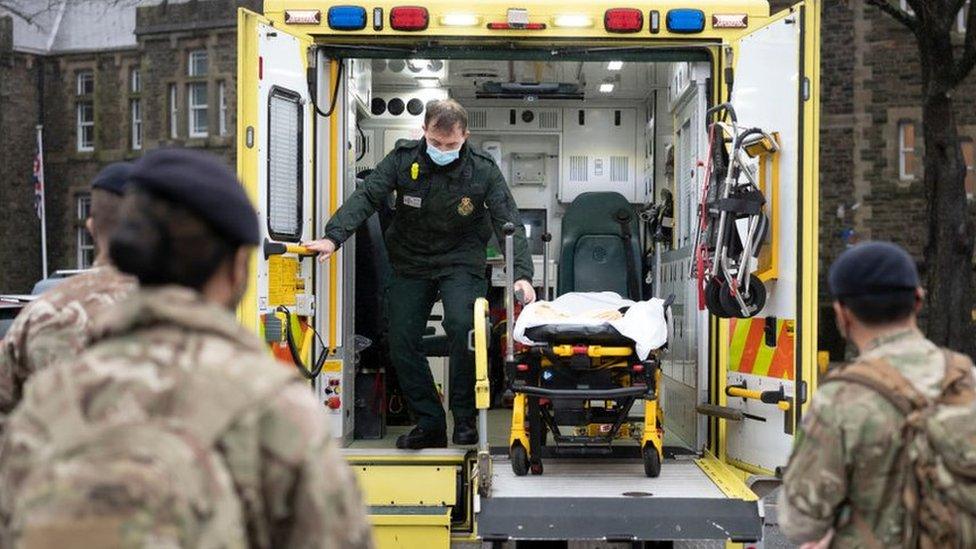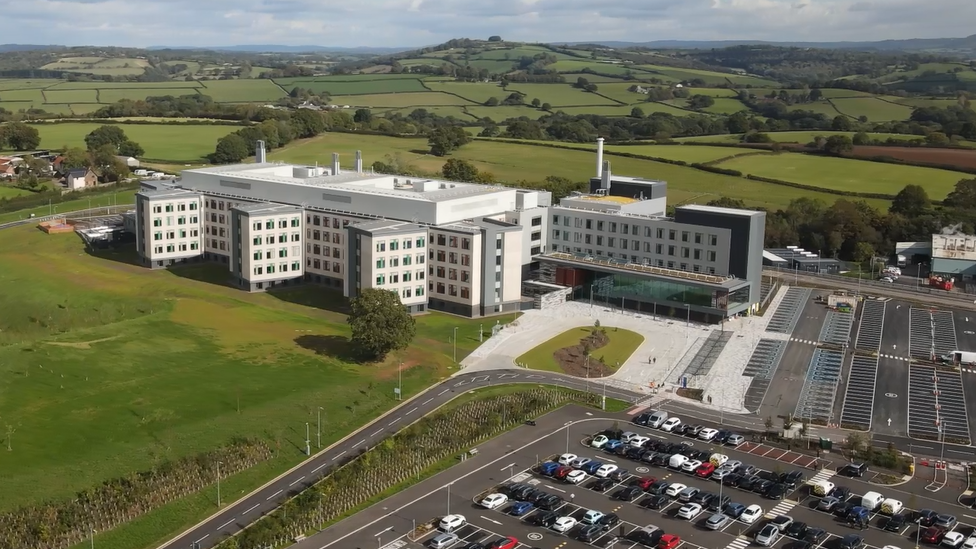Wales ambulance: Man, 95, who died waited almost 12 hours
- Published

The Welsh Ambulance Service said Mr Samuel’s experience was "not the level of service we want to provide"
An ambulance service has pledged to improve after the death of a 95-year-old man who was left waiting almost 12 hours following a fall.
Gwynne Samuel died at the Grange Hospital in Llanfrechfa, Torfaen, in May 2021, 10 days after a fall at home.
A coroner wanted to know why he was not taken to hospital until almost half a day after his daughter called.
The Welsh Ambulance Service said it was "not the level of service we want to provide."
Mr Samuel's daughter called the ambulance service just before 20:00 GMT on 10 May last year.
He was eventually taken to the hospital with a broken femur at about 07:30 the next morning.
In June, Gwent coroner Caroline Saunders, recorded a conclusion of accidental death.
However, the coroner also heard Mr Samuel had an acute kidney infection caused by rhabdomyolysis, which is a serious syndrome caused by muscle injury.
'Risk that future deaths will occur'
This was said to have been "directly attributable to the long lie [he] had experienced whilst waiting for an emergency ambulance".
In a report, Ms Saunders called on the ambulance service to explain what action it would take to prevent future similar incidents.
She wrote: "In my opinion there is a risk that future deaths will occur unless action is taken."
Liam Williams, the Welsh Ambulance Service's executive director of quality and nursing, responded by saying that Mr Samuel's experience was "not the level of service we want to provide".
He said: "Following the inquest into Mr Samuel's death, the coroner asked the trust to consider two issues; whether an elderly faller's 'long lie' is taken into account in the call categorisation process, and if there are plans to improve response times for 'amber' patients - the answer to both is yes.

Mr Samuel died at Grange University Hospital, Llanfrechfa, Cwmbran in May 2021
"We recognise the risks associated with lengthy periods of immobility, which is why 'long lie' fallers are reviewed by our 999 clinical support desk and upgraded as appropriate.
"We've also collaborated with St John Ambulance Cymru and Aneurin Bevan University Health Board on a number of falls initiatives, and continue to explore with partners how we can further improve in order to meet the needs of people who've fallen in the community."
Mr Williams said a "system-wide effort" was needed to address "sustained and extreme" pressures on health services overall.
He said: "The pressures upon the Welsh Ambulance Service and the wider health and care system are sustained, extreme and not new.
"Increased demand, more critically ill patients, staff absence and excessive hospital handover delays mean that our response times are not where we need them to be, particularly for 'amber' patients.
"We continue to take all possible action to respond quickly to patients in need of our service, but ultimately, it will take a system-wide effort to resolve system-wide issues.
"We continue to work with local health boards and Welsh government to press for real systemic change."
Related topics
- Published24 March 2022

- Published7 October 2021

- Published30 March 2022
